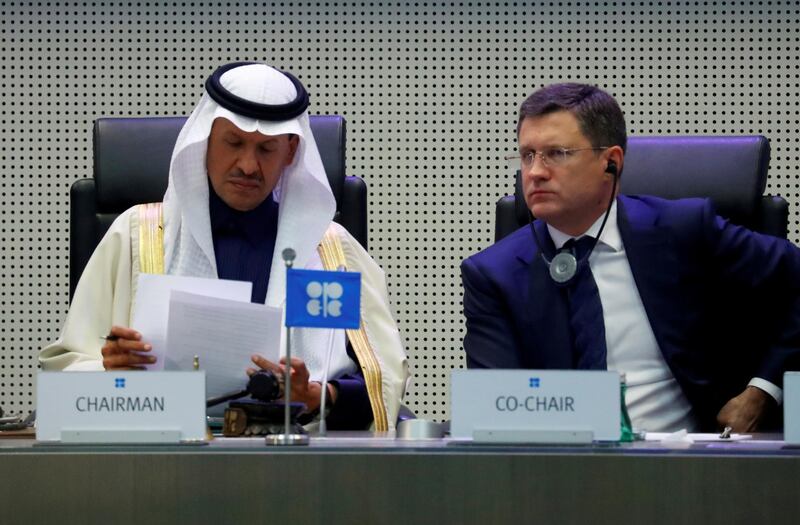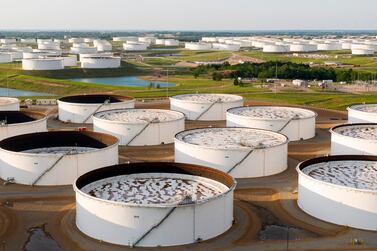The coronavirus pandemic has led to a greater momentum towards renewable energy, particularly among oil-exporting countries, energy ministers from Russia and the UAE said on Friday.
Efforts are underway to reduce the share of hydrocarbons in the global energy mix to 74 per cent from 85 per cent by 2040, with a commensurate 5 per cent increase of investment in green and renewable energy sources from last year, according to Alexander Novak, the Russian energy minister.
"The time is now. The structure of our energy balance is changing," he told a virtual session of the Global Manufacturing and Industrial Summit. "The pandemic has influenced consumer behaviour but it was already changing. Demand for oil is falling at the moment and there's a larger portion of non-carbon sources in the energy mix.”
Decarbonisation of the global energy system away from fossil fuels to renewables could generate $98 trillion (Dh360tn) in cumulative growth between now and 2050, adding an extra 2.4 per cent to gross domestic product, the International Renewable Energy Agency said earlier this year.
Costs of adding renewable capacity to grid are also falling, according to Irena, which said around half of clean sources added in 2019 were cheaper than coal.
Russia, the world’s second largest oil producer, also plans to increase the share of clean energy in its grid.
“In 2014 we had less than 1 per cent of our energy mix from renewables,” said Mr Novak.
“Right now it’s around 2 per cent but should come up to 4 or 5 per cent. We have committed to continue that programme for another 10 years until 2034 to add another 10,000MW when the cost should have come down sufficiently so that it will be competitive and no longer need to be subsidised,” he added.
The UAE, which is implementing a planned shift away from fossil fuels is accelerating the deployment of renewables in the grid, according to energy minister Suhail Al Mazrouei.
"In 2017, we looked at our options from energy sources and we looked at the targets and how we can make our cities among the world’s most liveable in the future,” he said.
“And by 2050, we plan to shift from 100 per cent reliance on natural gas in 2017 to produce 50 per cent from green forms of energy.”
The Emirates, which is home to about 6 per cent of the world's proven oil reserves, is under the UAE Energy Plan 2050, diversifying its energy mix and turning to renewable and nuclear energy.
The country aims to free up hydrocarbons for export markets and generate up to 44 per cent of its energy from clean sources by 2050, with 38 per cent coming from gas, 12 per cent from clean fossil and 6 per cent from nuclear energy.








